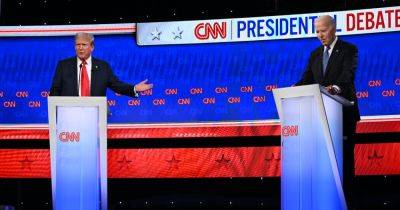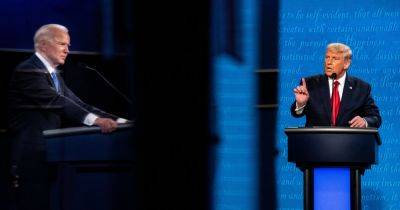Trump Vows to Lower Prices. Some of His Policies May Raise Them.
Former President Donald J. Trump routinely blames President Biden for higher prices at the grocery store and everywhere else Americans shop, and promises to “fix it.”
But Mr. Trump has offered little explanation about how his plans would lower prices. And several of his policies — whatever their merits on other grounds — would instead put new upward pressure on prices, according to interviews with half a dozen economists.
Mr. Trump says he plans the “largest domestic deportation in American history,” which would most likely increase the cost of labor. He intends to impose a new tariff on nearly all imported goods, which would probably raise their prices and those of any domestic-made competitors.
And he not only wants to make permanent the entire deficit-financed tax cut law he and congressional Republicans enacted in 2017, but also to add some kind of new “big tax cut” for individuals and businesses, which would stimulate an economy already at full employment.
As a matter of textbook economics, each of those three signature Trump policy plans would be likely to raise prices. Some could even cause continued, rather than one-time, price increases — adding to the possibility of inflation.
“I think we can say with a lot of confidence that President Trump’s trade policies and immigration policies would result in price spikes,” said Michael Strain, the director of economic policy studies at the right-leaning American Enterprise Institute.







